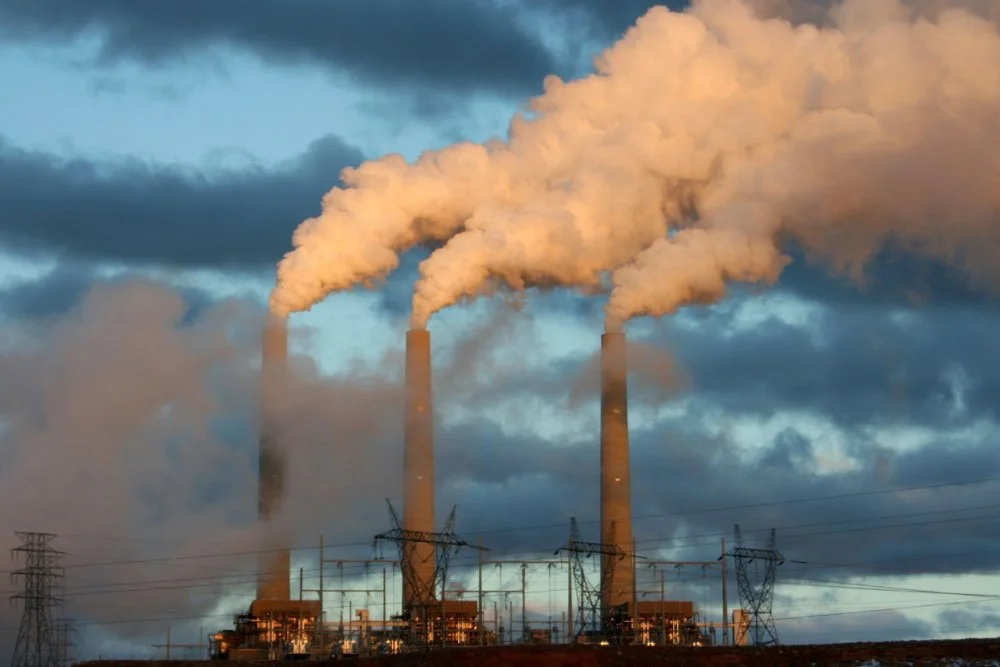Mars, Inc. Just Pledged $1B for Sustainability. Can Corporations Be Climate Allies?
/a coffee plantation in brazil. photo: Paulo Vilela/shutterstock
Mars, Inc., which you more likely know for its Skittles than its environmental record, has been pretty aggressive when it comes to improving company sustainability.
Now, it’s aiming to be a climate leader in the business community, and committing some significant funds to get there. The company just pledged $1 billion in investments over the next few years toward climate change, poverty and scarcity of resources, specifically targeting renewable energy, food sourcing, industry coalitions and support for farmers. That expands on its work to improve its own direct operations, which include a goal of eliminating 100 percent of its GHG emissions by 2040, now looking toward the greater supply chain.
This combination of company practices (which has some landed EPA recognition), the $1 billion commitment, and its recent outspoken defense of climate science and the need for action make the move particularly impressive. The company’s execs use pointed language, with Mars CEO Grant Reid saying in the announcement, “the engine of global business—its extended supply chain—is broken, and requires transformational, cross-industry collaboration to fix it.”
Related:
- Can a New Prize Rewarding Innovation Help Clean Up the Ocean Plastic Problem?
- What Kind of Impact Will Apple’s "Apps for Earth" Promotion Really Have?
The company’s sustainability chief Barry Parkin told Business Insider, “We believe in the scientific view of climate science and the need for collective action,” adding, "We're clearly disappointed that the US administration has chosen to withdraw from the Paris Agreement."
Mars was one of the companies that criticized the Trump administration when it announced it would withdraw from the historic accord. Mars’ head of communication Edward Hoover at the time told the Guardian (stealing my line), “Corporations can’t do it alone. Governments play a critical role in mitigating the effects of climate change on our economy.”
The century-old, family-owned company has historically been very quiet about its operations, but in the past five years or so, has made efforts to be more vocal about its sustainability efforts. In particular, it’s embraced climate science and science-based sustainability targets, as opposed to the sometimes arbitrary targets companies set based simply on what’s doable. Mars has made strides and commitments regarding improving its supply chain, too, though it’s also been a target of NGOs and campaigns, mainly related to harm caused by palm oil and cocoa sourcing.
It’s not totally clear how the $1 billion will be distributed, but the company does cite a current collaboration with Oxfam, the Farmer Income Lab, that seeks to lift up smallholder farmers. It’s also supporting a fund that backs sustainable agriculture practices for small farmers. As far as other philanthropy, Mars, Inc. has a small, company-sponsored foundation. And, of course, the greater Mars family is one of the wealthiest in the country, with a range of interests, including in environmental causes.
Related:
- Who Knew? A Prize Takes Aim at an Obscure But Critical Environmental Challenge
- Exploring Planet Mars: Where Will That $80 Billion Candy Fortune End Up?
- Mars Foundation: Grants for Conservation
So why is the company making this big move? A lot of corporations such as Apple and Walmart are pledging to reduce their footprints for a whole set of possible reasons, altruism aside. There’s always the PR element, an effort to boost its image among a consumer base that wants to feel good about its candy, and there is a marketing component involving M&Ms and wind turbines. There’s also the idea that improvements to the supply chain will create economic benefits, which Mars execs cite. A lot of these companies also see the writing on the wall when it comes to regulation, and want to get ahead of the curve, or a seat at the table when it comes to decisions. And finally, there is, perhaps, the desire to avoid devastating agricultural conditions that threaten long-term prospects.
There is good reason to be skeptical of the idea of a global corporation leading the way when it comes to climate and sustainability, because that’s just not what corporations are designed to do—they're here to make profits. And I’ve frequently made the case that building social movements and shifting power are core to progress on climate change.
But even though voluntary corporate actions aren’t going to cut it (as our friends at Mars point out for us), we still need the private sector onboard in support of climate action, and we need those companies that are to be far more aggressive about it. Marc Gunther has made the point that for too long, even corporations that align themselves with environmental groups have sat on the sidelines when it comes to pushing climate policy at the government level. We are starting to see some movement there in the Trump era, but the country is still far from establishing meaningful climate policy at the federal government level due to the GOP's refusal.
Maybe gutsier business allies can detoxify the climate discussion and play a role in breaking the Republican logjam on climate action in particular. Mars moving a billion toward sustainability is a welcome move, but that money is also important in that it elevates its unequivocal statement in support of climate action. Hopefully, Mars and more companies like it will use the full extent of their political power to push for action.
Related:







































